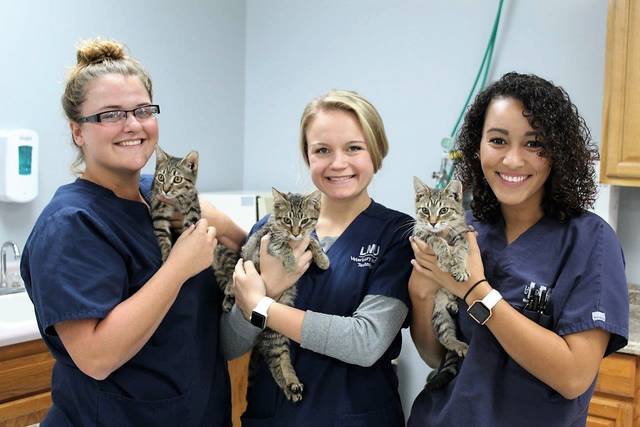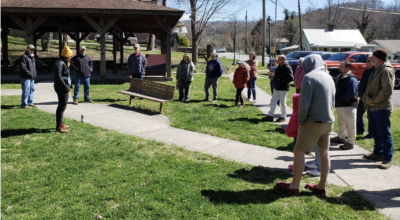LMU steps up to help cats displaced from Hurricane Irma
Published 12:00 am Thursday, January 1, 1970

Courtesy of LMU
LMU faculty and staff are working closely with several organizations as a coordinated effort to provide the best quality care for cats while they are displaced by Hurricane Irma.
Lincoln Memorial University’s (LMU) Veterinary Health Science and Technology department is caring for cats displaced by Hurricane Irma.
Organizations from across East Tennessee have come to the aid of 195 shelter felines who were evacuated from Dunkin, South Carolina, ahead of the storm. The cats arrived at the Humane Society of the Tennessee Valley late on Sept. 10. LMU, along with Young Williams Animal Shelter and the University of Tennessee College of Veterinary Medicine, split the animals up based on their need.
LMU faculty and students left with over 30 young cats and kittens. The feline Hurricane Irma refugees were in need of medical care for respiratory infections. Dr. Dawn Spangler, shelter medicine director for the LMU-College of Veterinary Medicine, helped coordinate foster home placements for nearly 20 of the cats, while over a dozen are still receiving treatment from LMU Veterinary Health Science and Technology students and faculty veterinarians Dr. Heather Bhakta, Dr. Jennifer Godsey and Dr. Bonnie Price.
“Our priority right now is to triage and treat the sickest animals and then we will work with Young Williams to place them into permanent homes,” said Price, assistant professor of veterinary science. “When we heard about these displaced cats, we knew we had the resources to help here at LMU. This was a wonderful opportunity for our students to put their clinical skills to use while helping with a much larger problem. Animals are often overlooked during natural disasters, so it is humbling to be able to lend a hand.”
LMU faculty and staff are working closely with the American Society for the Prevention of Cruelty to Animals (ASPCA), the Humane Society of the Tennessee Valley, Young William’s Animal Shelter and the University of Tennessee College of Veterinary Medicine’s Companion Animal Initiative in Tennessee (CAIT) as a coordinated effort to provide the best quality care for these animals while they are displaced.






